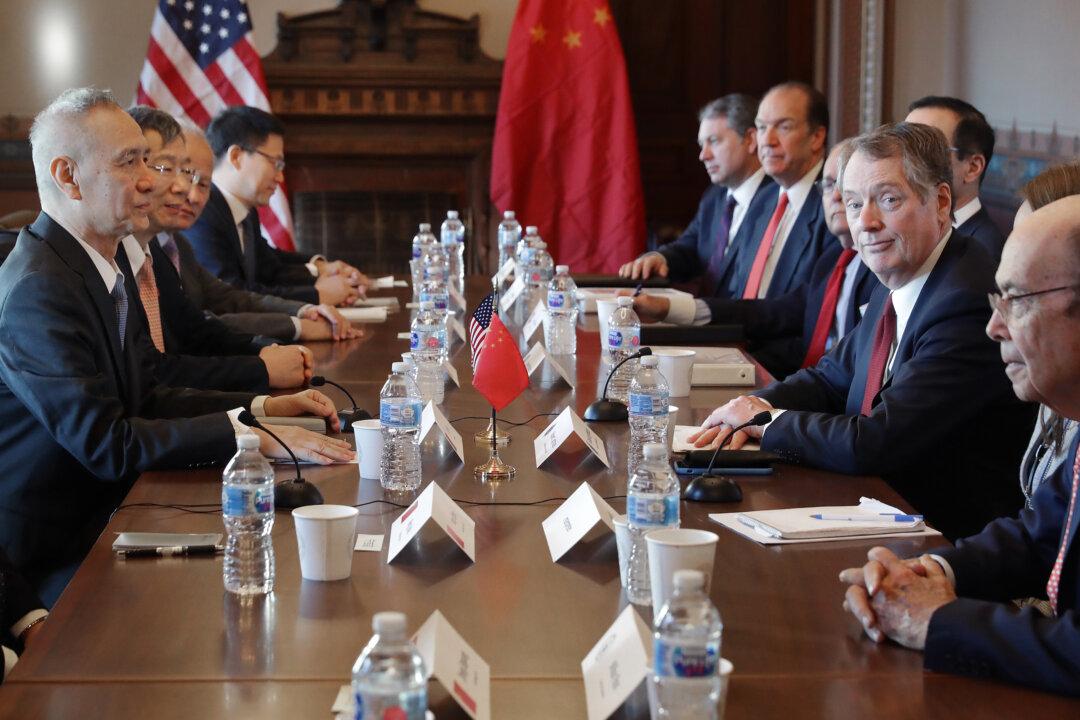WASHINGTON/NEW YORK —U.S. and Chinese trade officials held a “constructive” phone conversation on July 9, White House economic adviser Larry Kudlow said, marking a new round of talks after the world’s two largest economies agreed to a truce in a year-long trade war.
U.S. Trade Representative Robert Lighthizer and Treasury Secretary Steven Mnuchin spoke with Chinese Vice Premier Liu He and Commerce Minister Zhong Shan on Tuesday in a further effort to resolve outstanding trade disputes between the countries, a U.S. official said earlier in an emailed statement.





